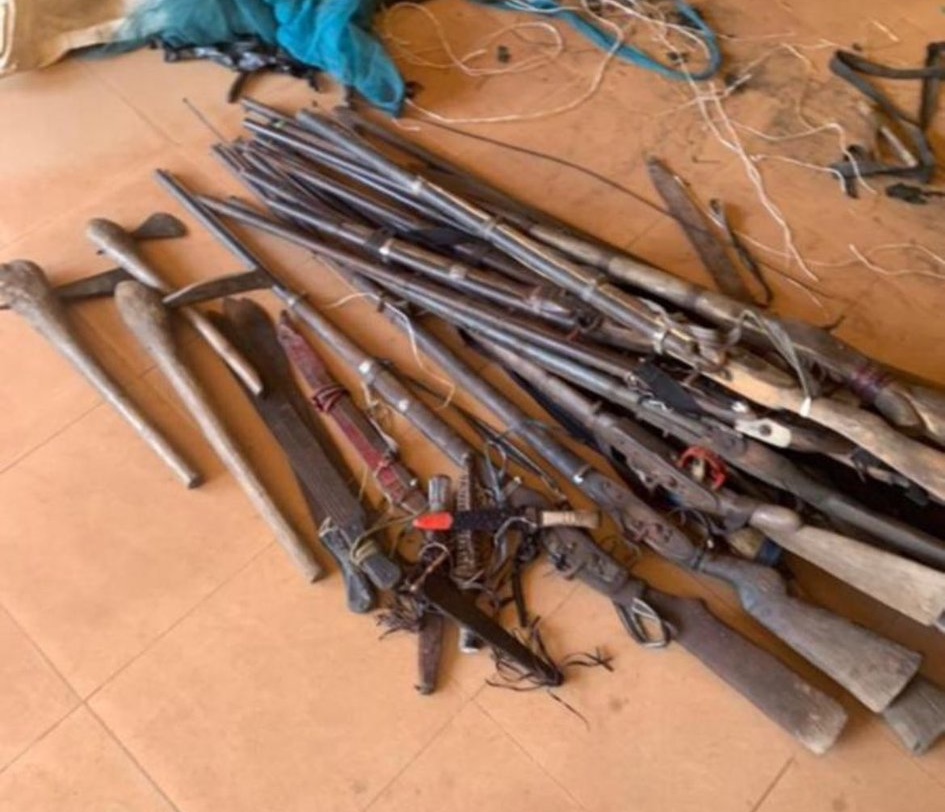The brutal events in Uromi that led to the unfortunate death of about 16 persons said to hunters are not isolated; they are yet another tragic entry in Nigeria’s long and shameful catalogue of state failure.
The victims, primarily Hausa hunters, were traveling from Port Harcourt to Kano for the Eid celebration when they were intercepted around 1:30 p.m. by members of the Edo State Security Corps and local vigilantes. They not only killed them, they killed their hunting dogs too.
Their Dane guns, traditionally used for hunting in Northern Nigeria, were mistaken for a security threat. Rather than notifying law enforcement, the vigilantes raised an alarm, triggering panic and violence.
Each time a crisis erupts, we see the same cycle: an atrocity occurs, ethnic narratives are spun, reactionary measures are taken, and soon, the country moves on—until the next disaster strikes. What we fail to do, time and again, is to identify and address the root cause: the abdication of responsibility by the Nigerian state.
The primary and direct cause of the unfortunate incident in Uromi is the elephant in the room – failure of the Nigerian government to effectively govern its territory. Security, which is the foremost duty of any state, has been relegated to a shadow of its intended purpose. Instead of professional law enforcement officers with the skills and resources to protect communities, we have seen the rise of untrained, ill-equipped vigilante groups trying to fill the gap. These groups, driven by ethnic allegiances rather than professional duty, operate with a dangerous blend of incompetence and impunity.
It is this systemic failure that has led to:
The unchecked proliferation of armed groups under the guise of ‘local security.’
The worsening insecurity in both rural and urban areas.
The perpetuation of mob justice, where groups take the law into their own hands due to a lack of faith in the justice system.
The Dangers of Ethnic Narratives
The immediate reaction to the Uromi massacre, as with many others before it, has been to frame it along ethnic lines. This approach is not only misleading but also dangerous. Crime knows no ethnicity. If we begin to attribute every crime to an ethnic group, we only pave the way for further division and collective punishment.
Imagine if every fraudster from the Southwest was labelled a ‘Notorious Yoruba Scammer’ or if every drug dealer from the South-East was tagged a ‘Igbo Cartel Member.’ The absurdity is evident. Yet, when crimes involve Fulani people, we are quick to brand entire communities as criminals. This selective outrage and stereotyping create a toxic environment where certain groups are perpetually dehumanised and scapegoated.
The Nigerian government has consistently failed to hold perpetrators of mob killings accountable. The lack of consequences has emboldened vigilantes and ethnic militias, fostering a culture of impunity. The events in Uromi were not spontaneous; they were the result of a society that has normalised lawlessness. Until the state begins to treat such crimes with the severity they deserve, we will continue to witness such horrors.
It is commendable that the Edo State government has taken initial steps, including suspending the commander of the Edo State Security Corps and arresting suspects. However, this should not be another performative action. Justice must be swift, decisive, and thorough. Anything less would be an endorsement of this barbarity.

History is replete with examples of how ethnic militias and vigilante groups, once empowered, become a greater threat to national security. Rwanda’s Interahamwe started as local defense groups. Ethiopia’s ethnic conflicts have roots in armed community groups acting beyond the law. Even in Nigeria, we saw how the Bakassi Boys and the OPC evolved into forces of terror rather than protection. Crime has no tribe, only enablers and perpetrators.
We must not walk that path again.
What Needs to Change?
- Security Reform – Nigeria must overhaul its security architecture, ensuring adequate recruitment, training, and deployment of professional security personnel. The reliance on vigilante groups must end.
- Accountability Mechanisms – The government must investigate and prosecute those responsible for the killings, setting a precedent that mob violence will not be tolerated.
- Public Enlightenment – We need a national reorientation that dismantles ethnic stereotypes and encourages critical thinking over blind rage.
- VIP Security Reallocation – The government must reassess its security priorities. Deploying most of the country’s security personnel to protect politicians while leaving communities vulnerable is unsustainable.
- Media Responsibility – The media must avoid sensationalising crime along ethnic lines. Headlines matter; narratives shape public perception.
The Uromi killings are not just a tragedy; they are a damning indictment of Nigeria’s failed security policies.
Fiat justitia ruat caelum – Let justice be done though the heavens fall.
Until we begin to demand real accountability and refuse to be distracted by ethnic scapegoating, we will continue to mourn preventable losses. Justice must not only be done but must be seen to be done, not just for the victims of Uromi, but for the soul of the nation.


